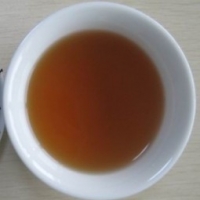Mini Gastric Bypass
During the course of normal digestion, the food we eat the goes through the food pipe into the stomach and then enters the small intestine, where most of the nutrients and calories are absorbed. The remaining waste is eventually excreted, after the food passes into the large intestine (colon).Through MGB surgery the food is allowed to bypass part of small intestine besides making the stomach size smaller. Therefore, people who undergo this surgery tend to feel full more quickly than when their stomach were original size. This reduces the amount of food that they eat and also the calorie intake. This causes weight loss.
One of the most important benefits of MGB is that it can be reversed unlike most of the other Bariatric procedures. It has proven to be able to produce long term weight loss and has much less amount of pain associated with the procedure .The cost MGB is lower than other bariatic surgeries. It is simpler operation with fewer staples lines. Although the surgery is very safe, all major surgery involves some degree of risk. Some of the possible problems that may occur are leak, bowel, obstruction, blood clot, and pneumonia. MGB patients must also be monitored for calcium deficiencies.
Individuals who are interested to undergo MGB should be aware that it is newer procedure and not widely accepted. Many bariatric surgeons are concerned about the relative safety of the procedure, including the possibility of bile reflux which can lead to severe ulceration of both the stomach and the esophagus. Patients must carefully research each procedure and discuss the options with a qualified bariatric surgeon then decide for themselves which procedure is appropriate for them. As MGB involves pre-operative, intra-operative and post-operative care, it is very important to choose the prospective surgeon carefully.
Related Articles
-
ViSalus Ingredients
Interested in checking out ViSalus ingredients? Perhaps lose some weig
-
The Low Body Fat Secret Of Bodybuilders And Fitness Models
The secret to getting super lean – Im talking about being RIPPED, no
-
The Secret to Busting Through Your Plateau, Part 1
Case Study #1 is a 40 year old woman attempting to lose weight. Lets c
-
Successful Weight Loss In Five Easy Steps
If you happen to be among the millions of people who are weight impair
-
Diet Information and High Protien Low Carb Diet
Today we are going to talk about the importance of to a healthy High
-
5 Simple, Smart And Easy Ways To Lose Weight Quick
If youve always wanted to lose weight now but never knew what to do to
- DON'T MISS
- Substitute Medication For Weight Loss
- How Safe Is The Hcg Treatment For Weight Loss?
- Selecting The Right Diet
- Push a Button to Lose Weight
- Lose Weight With Weight Loss Herbal Liquid TAIslim
- History of the Body Magic Shaper
- A New Weight Loss Surgery Is Causing Controversy: Do We Really Need Pre - Obesity Surgery?
- All Organic low fat protein shakes - Taking All Organic high calorie protein powder to Improve Whole body Systems
- Hypnotherapy for weight loss - Can you really lose weight?
- Obesity can cost dearly to your health




